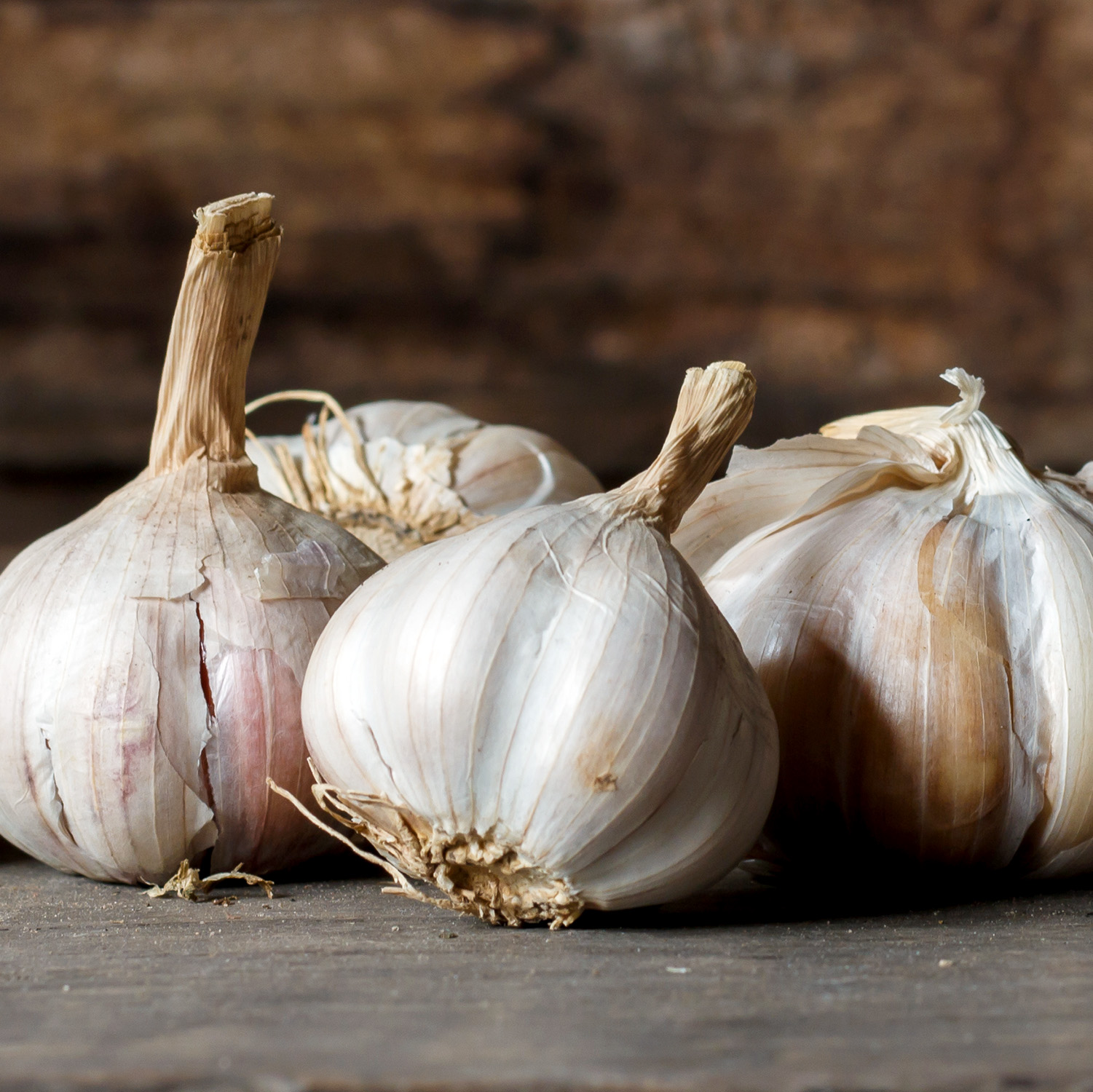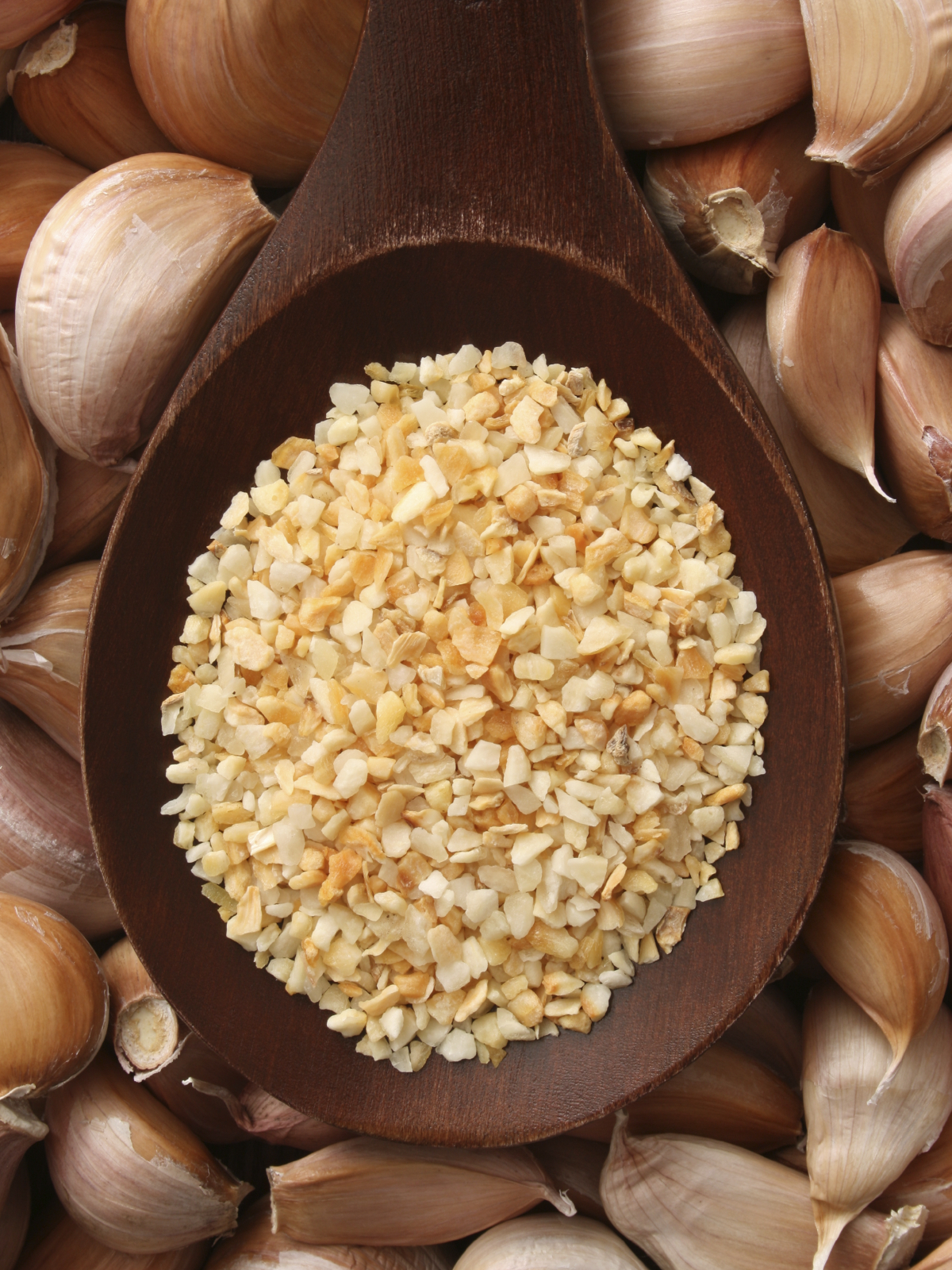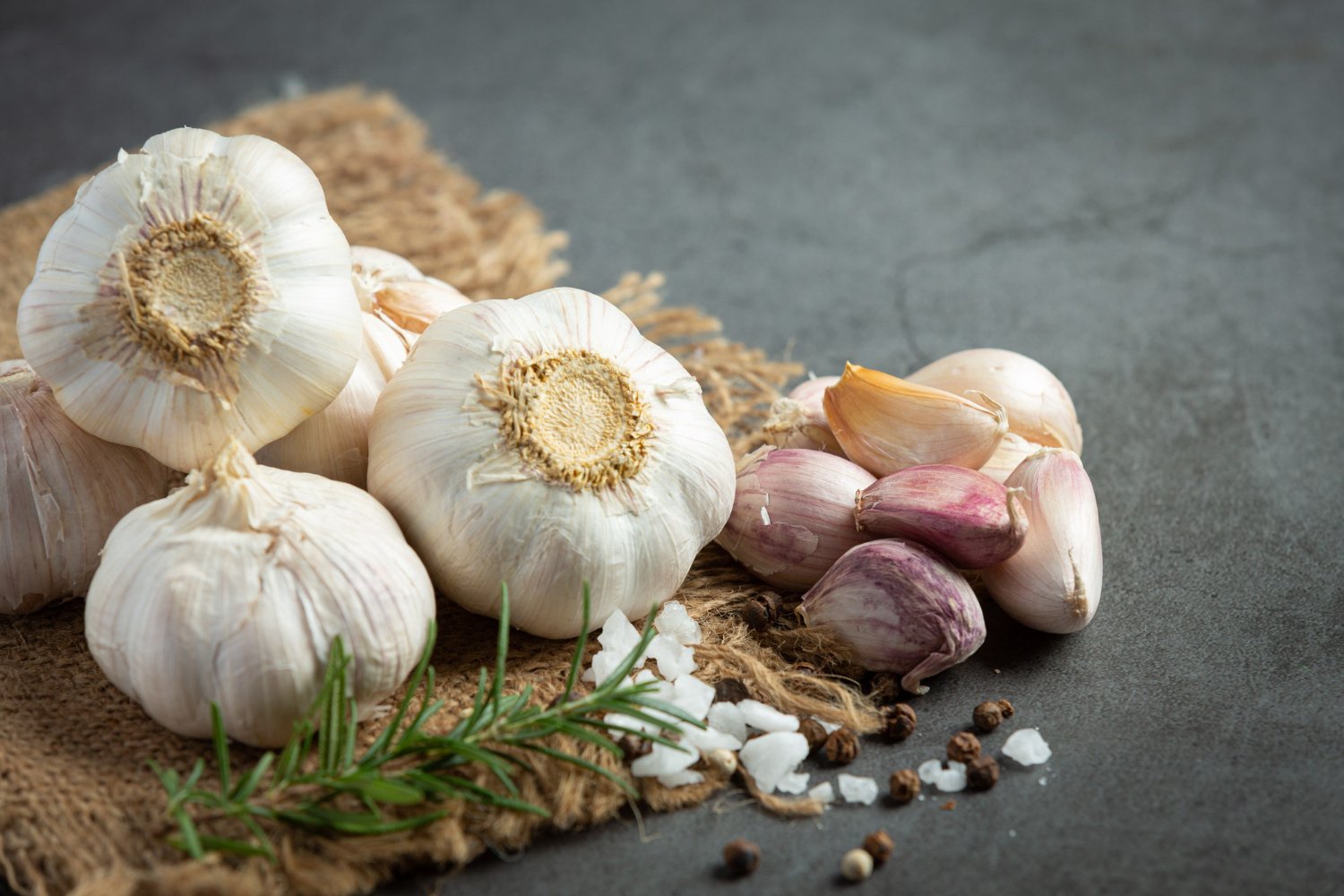Is Garlic Bad For Dogs? What Every Pet Parent Needs To Know Today
You know, that wonderful aroma of garlic wafting from the kitchen is just so inviting, isn't it? For us humans, garlic, scientifically known as allium sativum, is truly a staple in many dishes, adding a pungent, delicious kick. It's, like, an herb that's closely related to other flavorful plants such as onions, leeks, and chives. And honestly, for people, garlic has quite a reputation for being good for our health. We often hear about how it might help with heart and blood system stuff, and there's, you know, a chemical in it called allicin that gives it that distinct smell and some of its potential benefits.
So, it's pretty natural, isn't it, to wonder if something so good for us could also be a treat for our beloved furry friends? Many of us, myself included, have probably thought, "Hey, if garlic has all these amazing health benefits for me, maybe my dog could benefit too?" It's a very common thought, especially when you're preparing a meal and your dog is giving you those big, pleading eyes. You might just want to share a little bit of your delicious human food with them.
But here's the thing, and it's a really important piece of information for every dog owner: when it comes to garlic and dogs, the answer is a very clear and emphatic "no." While it might seem counterintuitive given its human health perks, garlic is actually quite dangerous for our canine companions. It's not, like, just a little bit bad; it's genuinely toxic to them. This is something every pet parent absolutely needs to keep in mind, and we'll talk more about why that is right now.
- Which Couples From Twin Love Are Still
- Who Is Tommy Aldridge Dating Now Past
- Few Untold Truth About Masters Of Flip
- Love Island Australia Season 4 Where Are
- Rapper Lloyd Is A Father Of Two
Table of Contents
- Garlic: A Closer Look for Humans
- The Big Question: Is Garlic Safe for Dogs?
- Why Garlic is Toxic to Dogs
- How Much Garlic is Too Much?
- Signs of Garlic Toxicity in Dogs
- What to Do If Your Dog Eats Garlic
- Preventing Garlic Exposure for Your Dog
- Frequently Asked Questions About Garlic and Dogs
Garlic: A Closer Look for Humans
Garlic, you know, that interesting plant with the bulbous shape, is a member of the Allium genus. Its close relatives are plants like onions, shallots, leeks, and chives, and even the Welsh onion and Chinese onion are part of this family. For us, garlic is celebrated for its many ways it can improve our well-being. There are, apparently, even 11 specific ways that garlic can help your health, all supported by science. It's really quite something, the way this simple herb has so much going for it.
When you, like, think about it, garlic has been used for ages for conditions that affect the heart and blood system. It actually produces a special chemical called allicin, which is what gives garlic its really strong, pungent smell. This compound is also responsible for many of the health benefits we get from eating garlic. People often wonder, "Is garlic good for you?" And the answer is a pretty solid "yes," because it truly offers multiple health benefits. It's not just about the taste, you know?
There's, honestly, more to love about garlic than just how it tastes. Compounds found in garlic can really help your heart, aid in digestive health, and even support your immune function. Some research even suggests that garlic has medicinal benefits for humans, which is why it’s perfectly natural to wonder about its effects on our pets. You can learn more about the health benefits of garlic for people if you're curious. This article also explores how you can add garlic to your diet and even a bit about its history.
- Christian Kirk Wife To Be Ozzy Ozkan
- Liz Cheney Husband Children Age Net Worth
- Who Is Rogel Lazaro Aguilera Mederos Wife
- Who Is Kevin Bacon S Son Travis
- French Montana Says Max B Might Be
However, it's important to remember that while garlic has a lot of good things going for it for people, some claims about its health benefits aren't always proven by science. That includes, for example, the idea that garlic can cure colds, flu, or other viruses, or help with sore throats or Alzheimer’s. So, while it's generally good for us, it's not a miracle cure for everything. And this distinction between human benefits and animal safety is, so, very important.
The Big Question: Is Garlic Safe for Dogs?
So, we come back to the core question: Is garlic bad for dogs? The answer, as we touched on earlier, is a very firm "no." Dogs should not eat garlic. It's, like, really not a suitable food for them at all. This is one of those times where what's good for us is actually quite harmful to our furry family members. It's safest not to give your dog any garlic, honestly, in any form.
The reality is that garlic's bad reputation for dogs, you know, it stems from a pretty fundamental misunderstanding of the research. It's not because there are tons of widespread cases of toxicity in dogs every day. But the scientific understanding is quite clear: garlic, like other members of the Allium family—think onions, leeks, and chives—contains compounds that can be quite toxic to dogs. It's, sort of, a silent danger.
Many human meals, as a matter of fact, contain garlic. This is why it's usually safest not to give your dog human food leftovers from your dinner. Even a little bit of garlic in a sauce or a cooked dish can be problematic for them. It's just not worth the risk, you know? Your dog's system just isn't built to handle those specific compounds.
Why Garlic is Toxic to Dogs
Garlic is toxic to canine companions in any form, honestly. Whether it's fresh garlic, dried garlic, or even powdered garlic, it's all bad news for dogs. The compounds in garlic can be highly toxic to their systems. These specific compounds are, you know, what cause the problems. They can damage a dog's red blood cells, which are super important for carrying oxygen all around their body. When these cells get damaged, it can lead to a type of anemia, which is a serious health issue.
The primary toxic compounds in garlic are a type of sulfur compound. These compounds, when a dog eats them, can cause oxidative damage to their red blood cells. Think of it, like, as rusting the cells from the inside. This damage makes the red blood cells fragile and can cause them to burst, which is not good at all. This condition is called hemolytic anemia, and it can be life-threatening for a dog. So, it's a pretty serious concern, you know?
It's important to remember that while garlic is a great way to add flavor to our dishes, it's just not something dogs should ever eat. Their bodies process these compounds very differently than ours do. What's a healthy boost for us is, apparently, a dangerous substance for them. So, really, keeping garlic away from your dog is a very important part of being a responsible pet parent. You can learn more about dog health on our site, which is, like, a good place to find more helpful information.
How Much Garlic is Too Much?
People often ask, "How much garlic is bad for dogs?" The truth is, there isn't a universally "safe" amount of garlic for dogs. While some sources might talk about a specific dosage, it's best to avoid feeding your dog any garlic at all. Even a small amount, especially for smaller dogs or those with underlying health issues, could potentially cause problems. It's, honestly, just not worth taking the chance.
However, for the sake of understanding the severity, some research suggests that around 15 to 30 grams of garlic per kilogram of a dog's body weight is the approximate range where serious toxicity can occur. To give you a picture, a single clove of garlic can weigh anywhere from 3 to 7 grams. So, you can see how even a few cloves could be a problem for a smaller dog. A little Chihuahua, for example, would need far less garlic to get sick than a big German Shepherd. It's, like, a really big difference.
But please, don't try to calculate a "safe" amount. The best and safest approach is to consider garlic, in any quantity, as off-limits for your dog. It's, you know, like saying a tiny bit of poison is okay; it's just not. The compounds are there, and they can cause damage. So, really, the less exposure, the better. And honestly, no exposure is the absolute best scenario.
Signs of Garlic Toxicity in Dogs
If your dog happens to eat garlic, it's really important to know what signs to look for. The symptoms of garlic toxicity in dogs can vary depending on how much garlic they ate and their individual sensitivity. These signs might not show up right away, either; sometimes it takes a day or even a few days for them to appear because the damage to the red blood cells can be a gradual process. So, you know, don't assume they're fine just because they seem okay immediately after.
Common signs of garlic poisoning can include things like vomiting and diarrhea. Your dog might also seem very tired or lethargic, just not themselves. They might lose their appetite, too, which is always a worrying sign. You might also notice a loss of coordination, or they might seem weak. Their gums could look pale, which is a sign of anemia, and their urine might appear dark or reddish. They could also have an increased heart rate or breathing rate, as their body tries to compensate for the lack of oxygen.
In more severe cases, a dog could collapse or have trouble breathing. These are, obviously, very serious symptoms that require immediate veterinary attention. It's, like, a race against time if you see these things. This guide explores the dangers of garlic for dogs, the symptoms of garlic toxicity, and preventive measures you can take. It's really about being prepared and knowing what to watch out for.
What to Do If Your Dog Eats Garlic
If you suspect your dog has eaten garlic, or if you've seen them eat it, the very first thing you should do is contact your veterinarian right away. Don't wait for symptoms to appear, because as we mentioned, they can be delayed. Time is, honestly, very important in these situations. Your vet will be able to advise you on the best course of action, which might involve bringing your dog in for an examination.
When you call your vet, try to provide as much information as you can. Tell them how much garlic you think your dog ate, what form it was in (fresh, powdered, cooked in a dish, etc.), and when they ate it. Also, tell them your dog's breed, size, and age. All these details can help your vet figure out the potential severity of the situation and what kind of treatment might be needed. It's, you know, like giving them all the pieces of a puzzle.
Treatment for garlic toxicity can vary. Your vet might induce vomiting if it's very soon after ingestion to try and get the garlic out of their system. They might also give activated charcoal to help absorb any remaining toxins. In more severe cases, your dog might need intravenous fluids, medications to protect their organs, or even a blood transfusion if the anemia is really bad. It's, like, a serious medical situation that needs professional care. And remember, you can always check out this page for more helpful tips on pet safety.
Preventing Garlic Exposure for Your Dog
The best way to protect your dog from garlic toxicity is to prevent them from eating it in the first place. This means being very careful about what your dog has access to. Since garlic is a common ingredient in human food, it's generally a good idea to avoid giving your dog any table scraps, especially from dishes that might contain garlic or other Allium family members. It's, honestly, just safer that way.
Make sure to store garlic bulbs and powdered garlic in places your dog cannot reach. Keep them in high cupboards or in containers that are difficult for curious paws to open. If you're cooking with garlic, be mindful of dropped pieces on the floor. Clean up any spills immediately. It's, you know, like child-proofing your home, but for your furry friend.
Educate everyone in your household, including visitors, about the dangers of garlic for dogs. Sometimes, well-meaning guests might not realize that garlic is harmful and could accidentally offer your dog a bite of something they shouldn't have. A simple conversation can go a long way in keeping your pet safe. It's, like, a team effort to protect your dog.
Always check the ingredient list of any packaged human foods or even some pet treats that are not specifically formulated for dogs. While rare, some treats might contain trace amounts of ingredients that are part of the Allium family. Sticking to dog-specific treats and foods is always the safest bet. It's, you know, just a good habit to get into for their well-being.
Frequently Asked Questions About Garlic and Dogs
How much garlic is toxic to a dog?
There isn't, honestly, a universally safe amount of garlic for dogs. While some sources might mention ranges like 15 to 30 grams per kilogram of body weight for severe toxicity, it's really best to consider any amount of garlic as potentially harmful. Even a small piece could be problematic, especially for smaller dogs or those with existing health conditions. So, the safest approach is to avoid feeding your dog any garlic at all, no matter how tiny the piece might be.
What are the signs of garlic poisoning in dogs?
The signs of garlic poisoning in dogs can vary, and they might not show up right away; sometimes it takes a day or even several days. You might notice your dog seems very tired or lethargic, or they could experience vomiting and diarrhea. Other signs include a loss of appetite, weakness, pale gums (a sign of anemia), or dark, reddish urine. In more serious cases, your dog might have an increased heart rate or breathing rate, or even collapse. If you see any of these signs, contact your vet immediately.
Is a tiny bit of garlic bad for dogs?
Yes, a tiny bit of garlic can still be bad for dogs. While a very small amount might not cause immediate, severe symptoms, it's still toxic and can contribute to damage over time or in sensitive individuals. The compounds in garlic that cause harm are present even in small quantities. So, it's genuinely recommended to avoid feeding your dog any garlic whatsoever, even just a little bit, to keep them safe and healthy. It's, like, just not worth the risk, you know?
- Ify Nwadiwe And Wife Aurora Has A
- What Happened To Tina Turner S Sister
- Carolin Bacic Celebrity Wife Wiki Age Height
- Bundun Youtube Star Detailed Bio Age Birthday
- Wait A Minute Could Gina And Mack

Garlic | NCCIH

10 Amazing Health Benefits Of Garlic

Everything you need to know about Garlic